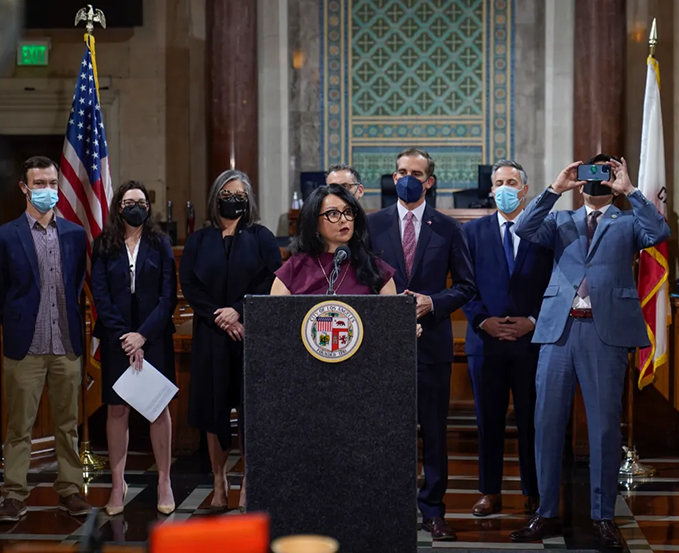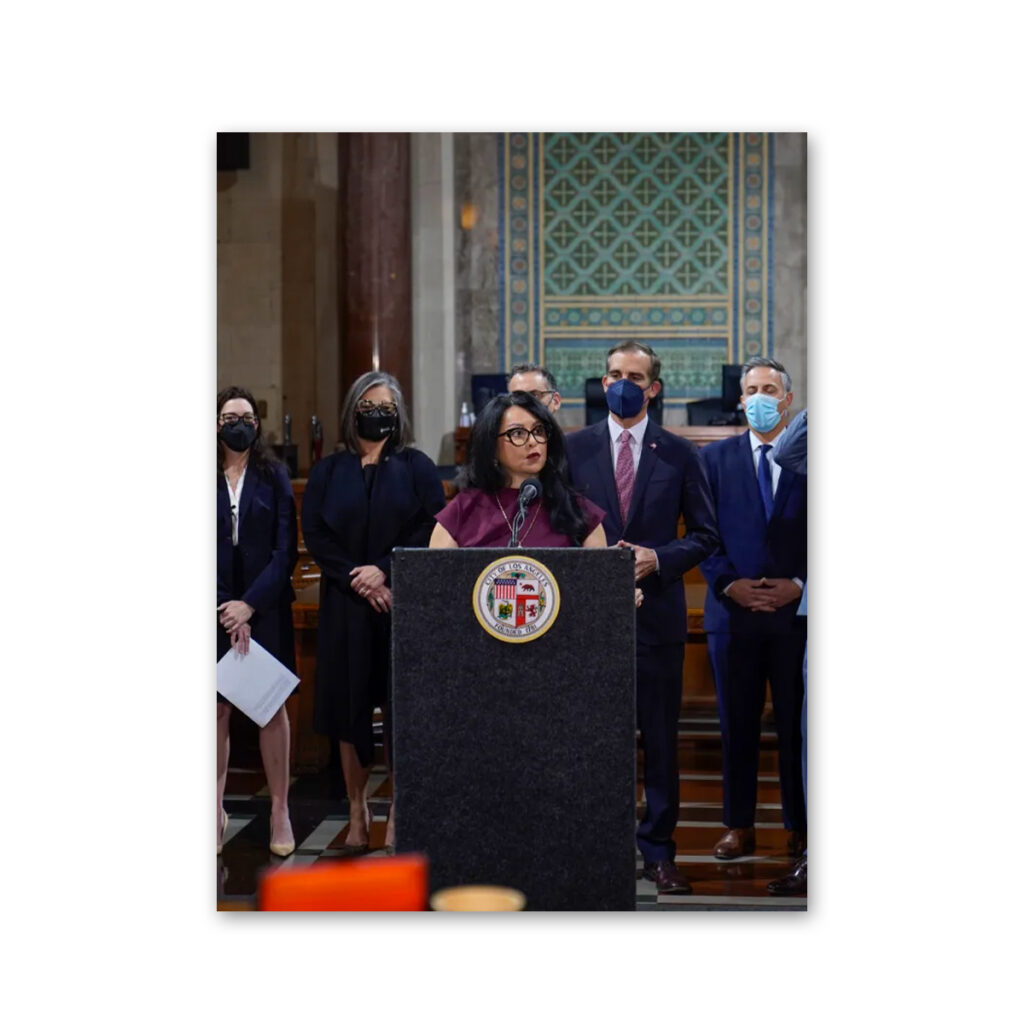
In October, a Reddit user leaked audio of a meeting between Ron Herrera, President of the Los Angeles County Federation of Labor, and Los Angeles council members Nury Martinez, Gil Cedillo and Kevin de León. On the recording, the council members made racist remarks about Indigenous peoples and African Americans.
Beyond the despicable bigotry, the recording revealed that this group had schemed to alter the boundaries of the city’s council districts. Their plan would have maximized their potential to win reelection under political designs that diminished Black and Indigenous Mexican Angelenos.
After the tapes were released, Herrera and Martinez resigned. Cedillo defiantly remained on the council until his term ended this month, and while de León has been stripped of committee assignments, he has still tried to attend meetings, sparking chaos and even a fight with activists.
There have been no further consequences for anyone at this time, and therein lies the problem.
California Attorney General Rob Bonta pledged to investigate whether Herrera, Martinez, Cedillo or de León violated any state or federal laws. Unfortunately, it does not seem that existing state and federal laws will allow Bonta to hold these disgraced politicians accountable.
There are several federal laws that protect voting rights, but they primarily focus on preventing racially biased tactics like literacy tests. Other laws that forbid interference with voting rights require intimidation, coercion or threats. Even if federal laws did cover the council members’ behavior, they don’t provide any punishment for the interference.
The options under state law aren’t much better. While California law provides clear guidelines for drawing Los Angeles’ voting districts, the rules do not list any punishments for those who tamper with the process. California’s Unruh Civil Rights Act also prohibits interference with civil rights, but like federal law, Unruh also defines interference as violence or intimidation. Since Martinez and her co-conspirators did not use physical or verbal intimidation, the state’s civil rights law is not applicable.
Similarly, the Brown Act sets requirements for announcing and conducting open meetings where California public officials make decisions, and sets misdemeanor penalties for violations. But the Brown Act only applies when a majority of the city councilors convene. Because the Los Angeles group contained only three members of the council, the Brown Act does not apply.
To be fair, while Martinez, Cedillo and De León met in secret, the final district maps were publicly adopted by the full council. But we do not yet know how much their backdoor dealings affected the final maps.
Clearly, California law has not fully contemplated the many ways that officials can interfere with the districting process. The state Legislature should act immediately to address the gaps. Any new laws should:
- Place the responsibility for drawing district lines with independent commissions rather than politicians – a move that is already being contemplated by the LA City Council;
- Punish those who interfere with – or conspire to interfere with – voting rights even when violence and intimidation are not involved;
- Require that anyone who inappropriately influences district lines – or attempts to do so – be immediately removed from office by a chosen panel and banned from holding office again; and
- Mandate that culprits who are removed from office for interfering with redistricting or other voting infringements make restitution for the costs of special elections to replace them (the special election to replace Martinez will cost an estimated $7.6 million).
The California Legislature should take up these urgent measures to make sure that future leaders will face steep consequences when they interfere with the voting or civil rights of the people they swore an oath to represent.
This article was originally published by Cal Matters.

